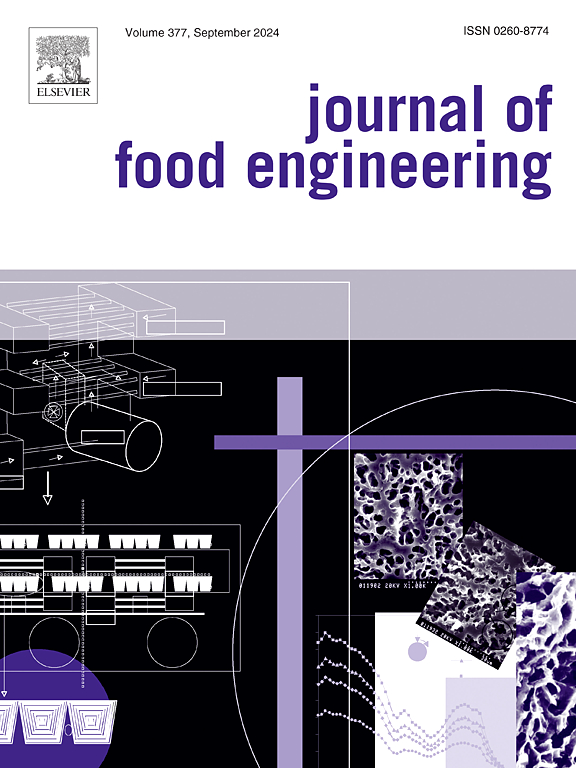A new insight on oil penetration of breaded fish nuggets during deep-fat frying based on the surfactant effect
IF 5.8
2区 农林科学
Q1 ENGINEERING, CHEMICAL
引用次数: 0
Abstract
The surfactant effect is widely recognized as an important theory on oil penetration of frying foods, but the mechanisms by which oil unsaturation and frying time affect oil oxidation and how oil oxidation influences oil penetration remain unclear based on this theory. The batter-breaded fish nuggets (BBFNs) were fried using four vegetable oils with varying levels of unsaturation for 90, 120, 150 and 180 s, respectively, the decrease in iodine value and increase in total polar compounds content and viscosity of oil indicated that the oil oxidation was aggravated by both increasing the oil unsaturation and frying time. Furthermore, the increased porosity and pore volume, decreased bulk density of fried BBFNs confirmed that oil oxidation promoted the formation of pores, which were verified using scanning electron microscopy. Finally, the decreased interfacial tension and contact angle between the oil and crust as well as surface oil content, the increased penetration oil content and red region by Sudan Red B indicated that oil oxidation facilitated oil penetration. This study clarified the impacts of oil unsaturation and frying time on oil penetration of fried BBFNs based on the surfactant effect theory.
基于表面活性剂效应的炸鱼块油渗透新认识
表面活性剂效应是油炸食品渗透油脂的一个重要理论,但根据这一理论尚不清楚油脂不饱和和油炸时间对油脂氧化的影响机制以及油脂氧化如何影响油脂渗透。用4种不同不饱和程度的植物油分别煎炸90、120、150和180 s,油的碘值下降,油的总极性化合物含量和粘度增加,表明油的不饱和程度和煎炸时间的增加加剧了油的氧化。此外,油炸BBFNs的孔隙率和孔隙体积增加,堆积密度降低,证实了油氧化促进了孔隙的形成,并通过扫描电镜进行了验证。原油与地壳的界面张力和接触角降低,表面含油量增加,渗透含油量增加,苏丹红B的红色区域增加,表明原油氧化有利于原油的渗透。本研究基于表面活性剂效应理论,阐明了油不饱和度和油炸时间对油炸BBFNs油渗透的影响。
本文章由计算机程序翻译,如有差异,请以英文原文为准。
求助全文
约1分钟内获得全文
求助全文
来源期刊

Journal of Food Engineering
工程技术-工程:化工
CiteScore
11.80
自引率
5.50%
发文量
275
审稿时长
24 days
期刊介绍:
The journal publishes original research and review papers on any subject at the interface between food and engineering, particularly those of relevance to industry, including:
Engineering properties of foods, food physics and physical chemistry; processing, measurement, control, packaging, storage and distribution; engineering aspects of the design and production of novel foods and of food service and catering; design and operation of food processes, plant and equipment; economics of food engineering, including the economics of alternative processes.
Accounts of food engineering achievements are of particular value.
 求助内容:
求助内容: 应助结果提醒方式:
应助结果提醒方式:


